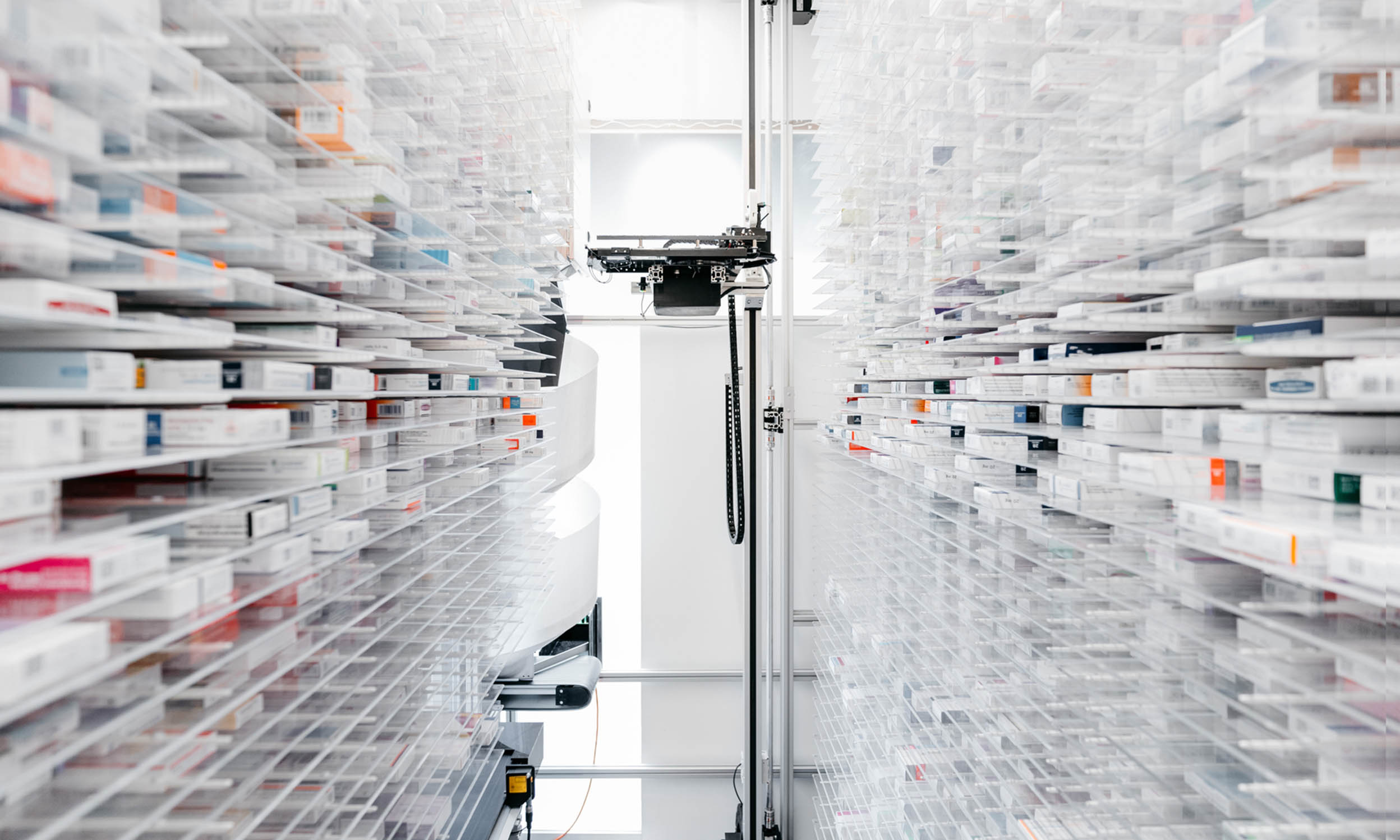
Innovation Innovation is reshaping how doctors treat millions of patients
Learn how innovation has sparked disruptions in healthcare and showcased the visionary thinking of the companies that comprise Invesco QQQ.

The rapid evolution of AI has captivated global attention, with prominent companies like NVIDIA and Microsoft often dominating the conversation due to their significant contributions to AI infrastructure and applications.
The AI landscape is vast, though, with numerous companies within the Nasdaq-100 Index employing AI in less publicized but intriguing ways. These innovations are not only transforming their respective industries but also offering potential opportunities for investors seeking exposure to cutting-edge advancements.
In an era where cyber threats are becoming increasingly sophisticated, Fortinet has become a leader by integrating AI into its cybersecurity solutions. Fortinet is best known for its firewall and network and cloud security solutions. In particular, the company’s AI-driven FortiAI platform emulates human security analysts, enabling real-time threat detection and response.
This proactive approach allows Fortinet to identify and neutralize cyber threats swiftly, enhancing the security posture of organizations worldwide. By automating complex security tasks, Fortinet’s AI integration not only helps improve efficiency but also can reduce the potential for human error in critical cybersecurity operations.
Intuitive Surgical is pioneering the fusion of AI and robotics in the medical field. The company’s da Vinci systems incorporate AI to assist surgeons with advanced imaging, real-time analytics, and precise instrument movements.
By analyzing vast datasets from previous procedures, the AI component provides insights that enhance surgical precision and patient outcomes. This integration of AI facilitates minimally invasive surgeries, leading to reduced recovery times and improved overall patient care.
Robotic surgery is an area that may see increasing adoption around the world in coming years. In early 2024, Intuitive Surgical rolled out da Vinci 5 , the next generation of its robotic surgical system.
Palantir Technologies specializes in data analytics platforms augmented with AI capabilities, enabling organizations to glean actionable insights from complex datasets. Its AI-driven solutions, including the Foundry and Gotham platforms, are instrumental across various sectors, including defense, healthcare, and finance, supporting predictive analytics and informed decision-making processes.
By leveraging AI, Palantir can enhance the ability of organizations to interpret data patterns, forecast trends, and make strategic decisions with greater confidence.
AppLovin utilizes AI to help revolutionize mobile advertising, optimizing user acquisition and monetization strategies for app developers. The company’s AI models analyze user behavior to deliver personalized ad experiences, aiming to increase engagement and revenue for clients.
By tailoring advertisements to individual user preferences, AppLovin seeks to enhance the effectiveness of marketing campaigns, benefiting both developers and end-users. Specifically, the company has introduced AXON 2.0 , an AI-powered platform that optimizes ad delivery through continuous learning and data refinement.1
It’s not just NVIDIA in semiconductors. For example, Broadcom plays a crucial role in the AI ecosystem by supplying custom chips and networking equipment essential for AI infrastructure. The company’s hardware solutions are integral to data centers and cloud services, facilitating efficient AI processing and scalability.
As the demand for AI applications grows, Broadcom’s contributions help ensure that the necessary computational power and connectivity are in place to support advanced AI functionalities.
While industry giants like NVIDIA, Microsoft, and a handful of others are often highlighted for their AI advancements, numerous other companies within the Nasdaq-100 are making significant strides by integrating AI into their operations in innovative ways.
These firms are not only transforming their industries but also contributing to the broader AI revolution. Investors seeking to participate in this dynamic landscape can consider Invesco QQQ ETF, which offers exposure to these and other pioneering companies within the Nasdaq-100.
Select the option that best describes you, or view the QQQ Product Details to take a deeper dive.

Learn how innovation has sparked disruptions in healthcare and showcased the visionary thinking of the companies that comprise Invesco QQQ.

Technology has disrupted just about everything. Learn how innovation is driving something as simple as your favorite cup of coffee.

There are many potential benefits for including ETFs in core equity portfolios. See how ETFs can be utilized to potentially reach a variety of goals.
NA4256498
Past performance is not a guarantee of future results.
AI technology companies are sensitive to specific risks such as small markets, business cycle changes, economic growth, technological progress, obsolescence, and regulation. These companies may have limited products, markets, resources, or personnel, making their securities more volatile, especially for smaller start-ups. Rapid technological changes can adversely affect their results. AI companies often rely on patents, copyrights, trademarks, and trade secrets to protect their technology, but there is no guarantee these protections will be sufficient. Significant R&D spending does not ensure product or service success.
This does not constitute a recommendation of any investment strategy or product for a particular investor. Investors should consult a financial professional/financial consultant before making any investment decisions.
The opinions expressed are those of the author, are based on current market conditions and are subject to change without notice. These opinions may differ from those of other Invesco investment professionals.
There are risks involved with investing in ETFs, including possible loss of money. Shares are not actively managed and are subject to risks similar to those of stocks, including those regarding short selling and margin maintenance requirements. Ordinary brokerage commissions apply. The Fund’s return may not match the return of the Underlying Index. The Fund is subject to certain other risks. Please see the current prospectus for more information regarding the risk associated with an investment in the Fund.
Investments focused in a particular sector, such as technology, are subject to greater risk, and are more greatly impacted by market volatility, than more diversified investments. The Nasdaq-100 is a stock market index made up of equity securities issued by 100 of the largest non-financial companies listed on the Nasdaq stock exchange. Investment cannot be made directly into an index.
This content should not be construed as an endorsement for or recommendation to invest in Fortinet, Intuitive Surgical, Palantir Technologies, AppLovin Corporation, or Broadcom. None of the companies mentioned herein are affiliated with Invesco. Only 5 of 101 underlying Invesco QQQ ETF fund holdings are featured. The holdings are meant to help illustrate representative innovative themes, not serve as a recommendation of individual securities. Holdings are subject to change and are not buy/sell recommendations. See invesco.com/qqq for current holdings. As of 2/18/25, Fortinet, Intuitive Surgical, Palantir Technologies, AppLovin Corporation, and Broadcom made up 0.53%, 1.29%, 1.64%, 0.89%, 4.32%, respectively, of Invesco QQQ ETF.